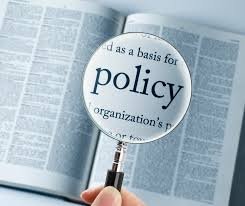Introduction
Currency markets, also known as forex markets, are critical to the global economy as they determine exchange rates and facilitate international trade and investment. Economic policies play a pivotal role in shaping currency markets, influencing exchange rates, and ultimately impacting the global economy. Understanding these policies and their effects on currency values is essential for investors, policymakers, and businesses alike. If you wish to learn about investing with education companies, you might consider visiting and clicking Go swapitor.org/.
Understanding Economic Policies
Economic policies are strategies implemented by governments to influence a nation’s economic performance. They primarily include fiscal policies, monetary policies, and trade policies.
- Fiscal Policies: These involve government spending and taxation decisions aimed at influencing economic activity. By adjusting the level of public expenditure and tax rates, governments can either stimulate economic growth or cool down an overheated economy.
- Monetary Policies: Managed by central banks, these policies involve regulating the money supply and interest rates to control inflation and stabilize the currency. Central banks use tools like interest rate adjustments, open market operations, and reserve requirements to achieve their monetary goals.
- Trade Policies: These include tariffs, trade agreements, and import/export regulations. Trade policies impact a country’s trade balance, which can influence currency strength and stability.
Fiscal Policies and Currency Markets
Fiscal policies can significantly impact currency markets through various channels:
- Government Spending and Taxation: Increased government spending can boost economic activity, potentially leading to higher inflation and a depreciating currency. Conversely, higher taxes can reduce consumer spending and slow economic growth, potentially leading to currency appreciation if inflation is kept in check.
- Deficit and Debt: Large fiscal deficits and rising national debt can undermine investor confidence, leading to a weaker currency. For instance, if a country runs a significant budget deficit, it may need to borrow extensively, increasing the supply of its currency and causing depreciation.
- Case Studies: During the 1980s, U.S. fiscal policies, including substantial tax cuts and increased defense spending, contributed to a significant rise in the national deficit. This period saw fluctuations in the U.S. dollar, influenced by both domestic and international reactions to the increased fiscal deficit.
Monetary Policies and Currency Fluctuations
Monetary policies directly affect currency markets through several mechanisms:
- Interest Rates and Inflation: Central banks adjust interest rates to control inflation and stabilize the currency. Higher interest rates typically attract foreign investment, leading to currency appreciation, as investors seek higher returns. Conversely, lower interest rates can lead to currency depreciation due to reduced investment flows.
- Quantitative Easing and Tightening: In times of economic downturns, central banks may engage in quantitative easing (QE), purchasing government securities to increase the money supply and stimulate economic activity. While QE can boost growth, it can also lead to currency depreciation due to the increased money supply. Conversely, quantitative tightening, which involves selling assets to reduce the money supply, can lead to currency appreciation.
- Exchange Rate Regimes: Countries may adopt fixed or floating exchange rate regimes. Fixed regimes peg the currency to another currency or basket of currencies while floating regimes allow market forces to determine the exchange rate. Central banks may intervene in currency markets under floating regimes to stabilize their currency.
Trade Policies and Currency Values
Trade policies influence currency values through their impact on a country’s trade balance:
- Trade Balances and Currency Strength: A trade surplus (exporting more than importing) generally leads to currency appreciation, as foreign buyers need to purchase the domestic currency to pay for exports. Conversely, a trade deficit can lead to currency depreciation, as more of the domestic currency is sold to purchase foreign goods and services.
- Tariffs and Trade Agreements: Imposing tariffs can reduce imports and improve the trade balance, potentially leading to currency appreciation. Conversely, trade agreements that enhance trade flows can increase the demand for a country’s currency, leading to appreciation. For example, the North American Free Trade Agreement (NAFTA) impacted the currencies of the participating countries by influencing trade balances.
- Globalization and Trade Flows: The integration of global markets means that shifts in trade policies can have far-reaching effects on currency values. For instance, changes in trade policies by major economies like the U.S. or China can lead to significant currency market fluctuations due to their impact on global trade flows.
The Role of Economic Indicators
Economic indicators provide insights into economic conditions and can influence currency markets:
- Economic Reports and Data: Key indicators such as GDP growth, unemployment rates, and consumer confidence affect currency values. Strong economic performance, reflected in robust GDP growth and low unemployment, often leads to currency appreciation. Conversely, weak economic indicators can lead to currency depreciation.
- Market Reactions to Data Releases: Currency traders and investors closely monitor economic reports. Positive data may lead to currency appreciation as confidence in the economy grows, while negative data can result in depreciation. For example, a strong jobs report may lead to currency appreciation as it signals economic strength and potential interest rate hikes.
Political Instability and Currency Markets
Political events can significantly affect currency markets:
- Impact of Political Events: Elections, policy changes, and political instability can create uncertainty, leading to currency volatility. For instance, unexpected election results or policy shifts can prompt market reactions that impact currency values.
- Geopolitical Risks: International conflicts, sanctions, and diplomatic tensions can lead to currency fluctuations. Political instability in major economies or regions can lead to a flight to safe-haven currencies, such as the U.S. dollar or Swiss franc, causing appreciation of these currencies and depreciation of others.
Conclusion
Economic policies profoundly impact currency markets through their effects on inflation, interest rates, trade balances, and investor confidence. By understanding these relationships, stakeholders can better anticipate currency movements and make informed decisions. As global economies continue to evolve, monitoring economic policies and their implications for currency markets remains crucial for navigating the complexities of the forex landscape.

Daniel J. Morgan is the founder of Invidiata Magazine, a premier publication showcasing luxury living, arts, and culture. With a passion for excellence, Daniel has established the magazine as a beacon of sophistication and refinement, captivating discerning audiences worldwide.





